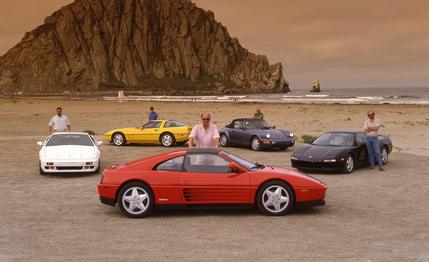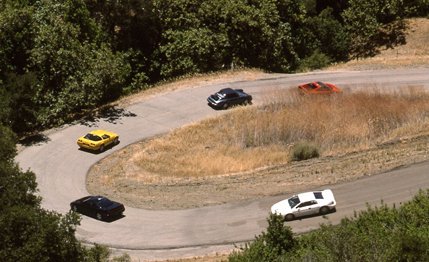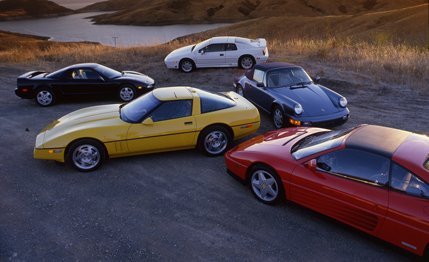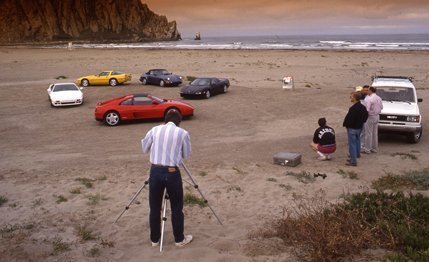 Archived Comparison
Archived Comparison
If they draw crowds when they stop and draw cops when they move, if they're priced like real estate and powered like orbital launchers, if they seem too wild to roam the same streets with the Avon lady and the meter man, then they must be Eroticars. Or else the latest rock band.
Obviously, this is a car magazine so we're talking cars. But the cars we're talking about in this review are way out at the edge of the definition, way out there where one more tweak will put them over the line into Learjets.
Think of them as Learjets for the ground.

In Europe, where the famous labels first became famous, Ferrari, Lotus, and Porsche have always meant speed. That's the point: cars that get you there fast. As in the Learjet, such purposefulness is sexy. Pull the skin tight over muscles hard enough to break 160 mph and there you have it, the Eroticar.
Traditionally, Europe was the only source of Eroticars. The names still tingle the senses—Ferrari, Maserati, Lamborghini, Aston Martin. But others are crashing the party. Upstart Honda is introducing the NSX, to be sold as an Acura in the U.S. Chevrolet has stepped up with its Corvette ZR-1. Do they belong on the list?
Who has the list, anyway?
In fact, the list is hopelessly out of date. The time has come to check credentials again, round up all the players and see where they really stand.

The NSX and the ZR-1 have to prove themselves against the big guys. Anything packing Ferrari credentials has a standing invitation, and it just happens that Ferrari is replacing its popular 328 series with an all-new pair of aero-slotted models, the 348tb coupe and the 348ts targa-type Spyder. We obtained a Spyder for this test.
The new Lamborghini Diablo is not quite ready yet, Aston Martin is between models as well, and Maserati no longer builds two-seaters of this class. Lotus stands ready with its wedge-shaped and fiercely turbocharged Esprit Turbo SE, however.
And then there's Porsche. Back in the days when the polysyllabic Italians were dazzling the world with vibrant engines and sultry bodywork, Porsche was turning out quirky and affordable sports cars. Now Porsches are increasingly pricey, increasingly sophisticated, and increasingly rare. The four-wheel-drive Carrera 4 looks like a 911 on the outside, but it promises far more.

The logical Porsche for this Learjet class is the Carrera 4 coupe. Such a car was on its way to the festivities when, in the hands of a transportation company, it fetched up against an immovable object. The only substitute available on such short notice was the Carrera 4 Cabriolet you see here.
Probably you think a face-off of five Eroticars is fun, and—heh, heh—you're right. But it's also one of the toughest jobs we've stepped up to in years. Our standards demand that we push these automobiles to their limits, just as we would any econobox—never mind that the risks and the required run-off room are ever so much greater at jet speed. But we look at it this way: the legends of the future proceed from the performance marks set today. And we refuse to be a part of baloney legends. So the cars were driven to the max. Ambient temperatures edged above 100 degrees some of the time, into the zone where our weather corrections may not fully compensate for the adversity. That may be why some of the power-related numbers are slower than we've achieved with similar models in the past. But because this entire group was tested under the same conditions, you can be sure their relative capabilities shine through.
Enough preliminaries. Now it's judgment time.